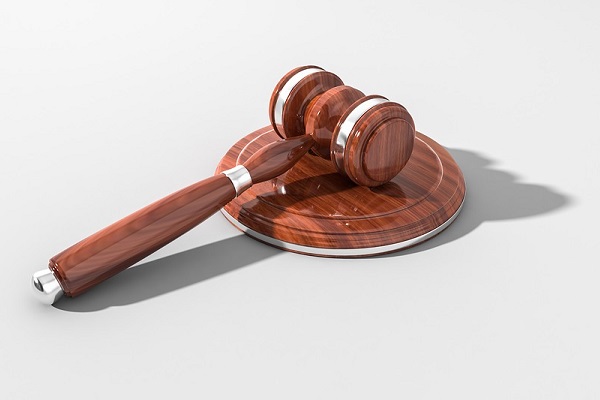
–>
October 22, 2022
The influence of Critical Race Theory is apparent in the trial of Darrell Brooks for the automobile massacre of six innocent people and injury to 60-plus individuals at a parade in Waukesha, Wisconsin in November 2021. Additionally, we can see the influence of such disparate movements as feminism, deconstructionist philosophy, and nihilism. These varied influences have enveloped the trial with an Alice in Wonderland aura, where there is virtuous posturing but not sufficient rationality, dignity, professionalism, and seriousness in play.
‘); googletag.cmd.push(function () { googletag.display(‘div-gpt-ad-1609268089992-0’); }); }
The two mainstays of Brooks’s defense, acting as his own lawyer, are (1) that he is not Darrell Brooks and (2) that the court does not have a right to try him as, somehow, it lacks jurisdiction to try murder cases in the state of Wisconsin even though it is a Wisconsin state court. Thus, he is not the defendant named, and the court is not the proper court. This is the nihilism inherent in his so-called defense, which, being absurd, is not a defense, yet his right to this non-defense is legitimate under the Sixth Amendment, according to a 1975 Supreme Court decision. His non-defense being considered a defense is part of our societal dislocation.
The judge, Jennifer Dorow, provided him with two copies of a paper explaining the nature of the court’s jurisdiction, but he tore up one of them. Almost every time his name is used by the judge, the prosecuting attorneys, or the witnesses, he objects (imitating lawyers, he says, “Objection!”). On those many occasions, the judge says, “Overruled,” and then the witness can answer the questions asked about “Mr. Brooks.” It is a tiresome charade at best, and it identifies the defendant as unserious, a disruptive clown attempting to make a sham out of his trial. He is saying, “How can I be the defendant if I am not Darrell Brooks?” These overrulings of Brooks’s objections fail to address the reality that he is belittling the law.
Supposedly in an effort to be fair, we as a society have painted ourselves into a corner where sober realities have begun to disintegrate before our eyes, and that disintegration is actively welcomed by far too many people. Jacques Derrida and Michael Foucault, French philosophers of the deconstructionist school of philosophy, advanced the views that our language is in some important sense arbitrary, and their views have influenced many during the past 60 years. For deconstructionists, the denotation/connotation distinction that we have relied upon for a very long time is itself arbitrary, and the essential meaning of words, which we consider to be denotation (derived from Aristotle’s understanding of “essence” — although Derrida emphasized the origin with Plato), is invalid. They believe there is much more variability in meanings of words than denotation would suggest, so communication is more of a creative act than we normally realize. Oprah Winfrey’s attempt to replace the importance of The Truth with “My Truth” is an expression of the shift away from denotation and permanence by the above-named deconstructionists beginning in the 1960s.
‘); googletag.cmd.push(function () { googletag.display(‘div-gpt-ad-1609270365559-0’); }); }
Deconstructionism in our use of language — i.e., the denial of the denotative — is thus clearly related to nihilism, which skips the step of language and declares all fixed beliefs as unworthy simply because they are fixed and thus block change. Change for the nihilist might seem chaotic at first but will bring a refreshment of society, as it will lead to the abandonment of oppressive rigidity.
This writer, when first watching the trial of the Waukesha murderer, considered the judge a paragon of patience as she explained every statement made to the defendant, and answered his objections with a big sisterly, considerate tone of voice. Only when his acting out became too extreme did she temporarily punish him by sending him to another courtroom where his microphone could be muted if his responses or interpositions were offensive.
This big sisterly or motherly patience seemed to dovetail with the intent that there be no impression that this black defendant was being railroaded by white prosecutors or a white judge. The attempt to portray the American justice system as deeply racist in its prosecutions and convictions has been around for a long time but has accelerated during the past couple of years after George Floyd died in police custody and the policeman in charge of that detail was convicted of murder.
That case and other controversial cases, which led to police reforms and violent protests in recent years, have put the justice system on the defensive. We have seen more arrested persons released throughout the country without paying bail, and there has been an upsurge in crimes throughout our cities. However, there are many who believe that we are more moral and correct if we underreact than if, in the name of zealous law enforcement, we overreact and create a climate perceived to be racially oppressive. The idea of systemic racism in our legal system, developed by Derrick Bell, a professor at Harvard Law School, has morphed into a full-scale critique of law enforcement practices by advocates of Critical Race Theory, notably the Black Lives Matter organization and its affiliates.
Thus, the judge’s motherly patience, as if toward a wayward or recalcitrant child, seemed to be in evidence throughout the proceedings in Wisconsin. At first, it seemed to me that this was good because it would serve to reassure the critics of our justice system that justice could be served in a white-dominated trial. However, the idea that justice is served by our willingness to be manipulated as proof of our “love” is inherently false, and I have retreated from my original respect for the judge and the ever-patient prosecution. This is, I believe, a fruit of feminism, which sees motherly love as a model of the best behavior. A more severe/fatherly tone would have been better.
The defendant should not be allowed to repeat his endless objections to the proceedings. Rather, he should have been in the separated courtroom throughout and his microphone muted every time he made nonsensical objections. The judge should not feel that it is incumbent upon herself to meticulously explain her reasoning regarding many matters of law that Brooks does not understand and obviously does not want to understand. His attempts to argue with witnesses or with the judge should not only be explained to him as unlawful, but should not be allowed at all, since they only encourage the playacting and pretense of fairness — whereas the trial is, with his inordinate participation, more of a farce than a trial.
‘); googletag.cmd.push(function () { googletag.display(‘div-gpt-ad-1609268078422-0’); }); } if (publir_show_ads) { document.write(“
By being a patient big sister or mom, the judge has inappropriately diluted her role as judge despite the momentary appeal of her beauty and kindly tone of voice and moderation. Justice requires more manly sobriety and professionalism.

Image via Max Pixel.
<!– if(page_width_onload <= 479) { document.write("
“); googletag.cmd.push(function() { googletag.display(‘div-gpt-ad-1345489840937-4’); }); } –> If you experience technical problems, please write to [email protected]
FOLLOW US ON
<!–
–>
<!– _qoptions={ qacct:”p-9bKF-NgTuSFM6″ }; ![]() –> <!—-> <!– var addthis_share = { email_template: “new_template” } –>
–> <!—-> <!– var addthis_share = { email_template: “new_template” } –>







